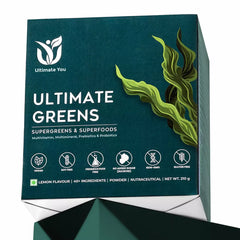Understand the differences between whey and plant protein to make an informed choice for your health and lifestyle preferences.
Are you looking to boost your protein intake but need help determining which supplement is right for you? The dilemma between whey protein and plant protein is common among health-conscious individuals seeking optimal nutrition. While plant protein offers a diverse nutrient profile and caters to various dietary preferences, it may lack essential amino acids and have a grainy texture. On the other hand, whey protein provides a complete source of protein, particularly beneficial for muscle growth and recovery. Yet, it may pose challenges for those with dairy allergies or lactose intolerance.
Fortunately, understanding your dietary needs, fitness goals, and personal preferences can help you navigate this protein problem effectively. Let's delve deeper into the differences and benefits of whey protein and plant protein to determine the ideal supplement for your lifestyle.
What is Plant Protein?
Plant protein refers to protein derived from plant-based sources such as legumes, grains, nuts, seeds, and soy. Unlike animal-derived proteins like whey or casein, plant proteins cater to vegetarians, vegans, and individuals with lactose intolerance or ethical dietary preferences. These sources offer a wide variety of amino acids for muscle repair, growth, and overall health.
While some plant proteins may lack specific amino acids compared to animal proteins, combining various plant sources can create a complete amino acid profile. For instance, combining rice and beans or peanut butter on whole wheat bread can provide a complete protein source.
Moreover, plant proteins are not just about protein. They are a powerhouse of additional nutrients like fibre, vitamins, minerals, and phytochemicals, contributing significantly to overall well-being. Popular plant protein sources include soy, peas, hemp, rice, chia, quinoa, and lentils.
With the world's growing interest in sustainable and ethical eating, plant protein has rightfully gained prominence for its environmental benefits and potential health advantages. It is a versatile and valuable component of balanced diets worldwide, offering a wealth of health benefits to those who choose to embrace it.
|
Plant Protein Nutritional Information |
|
|
Carbohydrates |
3-7 grams |
|
Protein |
70-85 grams |
|
Fats |
1-5 grams |
How much Plant Protein do I need per day?
The daily intake of plant protein varies based on age, weight, activity level, and dietary preferences. However, individuals can consume around 0.8 to 1 gram of protein per kilogram of body weight per day.
Benefits of Plant Protein
Complete Protein Source: Plant proteins like soy, quinoa, and hemp seeds provide all essential amino acids for muscle repair, growth, and overall health, dispelling the myth that plant proteins are incomplete.
Heart Health: Plant proteins are a heart-healthy alternative to animal proteins, as they are low in saturated fats and cholesterol. Regular consumption of plant proteins can lower LDL cholesterol levels and promote cardiovascular health.
Digestive Health: Plant proteins are rich in fibre, which helps promote regular bowel movements, support a healthy gut microbiome, and aid in weight management.
Reduced Inflammation: Plant proteins found in legumes and nuts have anti-inflammatory properties due to phytonutrients and antioxidants. Regular consumption of plant proteins can reduce inflammation in the body, promoting overall health and alleviating symptoms of chronic inflammatory conditions like arthritis.
Bone Health: Plant proteins like tofu and tempeh are rich in calcium and other essential minerals that help maintain bone health and prevent osteoporosis. Adding plant protein to your diet can contribute to overall skeletal health, particularly when combined with other bone-supportive nutrients like vitamin D and magnesium.
Reduced Environmental Impact: Plant proteins have a lower environmental footprint than animal proteins.
Allergen-Friendly: Plant proteins are free from common allergens like dairy and eggs, making them suitable options for individuals with food allergies or intolerances. Plant-based diets offer inclusive alternatives that accommodate diverse dietary needs and preferences.
Hormonal Balance: Plant proteins contain phytoestrogens, which can promote hormonal balance in the body. This may be particularly beneficial for women experiencing hormonal fluctuations during menstruation, menopause, or pregnancy.
Versatility and Variety: Plant proteins, such as beans, lentils, chickpeas, nuts, seeds, soy products, and whole grains, offer diverse flavours and textures for creative and delicious plant-based meals that nourish the body and delight the palate.
Pros and Cons of Plant Protein
Pros
- Often rich in fibre and nutrients.
- Suitable for vegans and vegetarians.
- Supports heart health.
- Environmentally friendly.
- Promote satiety and weight management.
Cons
- Some plant proteins have lower protein content per serving.
- Potential for allergic reactions (e.g., soy, nuts).
What is Whey Protein?
Whey protein, a high-quality protein derived from whey, the liquid byproduct of cheese production, is not just any protein. It contains essential amino acids, including branched-chain amino acids like isoleucine, leucine, and valine. What sets whey protein apart is its renowned rapid absorption rate, which provides immediate benefits after your workout. This assurance of quick recovery not only supports muscle repair and growth but also boosts your confidence and motivation to push harder in your workouts.
Moreover, whey protein, with its high biological value, ensures that your body utilises a significant portion of ingested protein for protein synthesis. Beyond its muscle-building benefits, whey protein has a wide range of health advantages. It has been associated with weight management, immune support, and improved satiety, providing you with a comprehensive health boost that goes beyond just muscle recovery. This reassures you that by incorporating whey protein into your diet, you're not just focusing on one aspect of your health but taking a holistic approach to your well-being.
Whey protein comes in numerous forms: protein concentrate, isolate, and hydrolysate, to meet different dietary requirements and preferences. However, it's important to note that before making any significant changes to your diet, it's always a good idea to consult a healthcare professional. The flexibility allows you to effortlessly add whey protein to your diet, no matter your individual needs. It's a nutritional supplement that truly understands and supports your fitness goals.
|
Whey Protein Nutritional Information |
|
|
Carbohydrates |
3-6 grams |
|
Protein |
70-80 grams |
|
Fats |
1-5 grams |
How much Whey Protein do I need per day?
Most individuals consume 20-30 grams of whey protein per serving once or twice daily to enhance muscle growth and aid in recovery. It's best to take it post-workout or with meals.
Benefits of Whey Protein
Muscle Growth and Repair: Whey protein, backed by scientific evidence, contains essential amino acids that stimulate muscle growth and repair after exercise. This makes it an invaluable supplement for athletes and fitness enthusiasts.
Weight Management: Whey protein can aid weight management by promoting fullness and reducing calorie intake. It helps curb hunger cravings, promote fat loss, and preserve lean muscle mass.
Enhanced Exercise Performance: Consuming whey protein before/after workouts can enhance performance by increasing strength, endurance, and recovery. Its quick absorption rate provides amino acids to fuel muscles during intense training and speed up post-exercise recovery, leading to more frequent and productive workouts.
Immune System Support: Whey protein boosts the immune system with its immunoglobulins and lactoferrin content. Regular consumption helps reduce the risk of infections, especially during intense physical training.
Blood Sugar Regulation: Whey protein slows glucose absorption, thus regulating blood sugar levels. It's beneficial for people with diabetes and reduces the risk of complications.
Lowering Blood Pressure: Whey protein may reduce blood pressure and lower the risk of heart disease. Its bioactive peptides help relax blood vessels and improve blood flow, promoting heart health.
Bone Health: Whey protein is good for bones as it contains calcium. It also helps in maintaining muscle strength, making it beneficial for overall skeletal health, particularly for older people.
Anti-Inflammatory Effects: Whey protein components like lactoferrin and immunoglobulins have anti-inflammatory properties. Regular intake of this supplement may help in treating arthritis or inflammatory bowel disease.
Antioxidant Activity: Whey protein contains antioxidants that neutralise free radicals and reduce oxidative stress. These antioxidants can protect cells, promote healthy ageing, and reduce the risk of chronic disease.
Convenient and Versatile: Whey protein supplements are available in powders, shakes, bars, and beverages for easy consumption. They are versatile and can be integrated into various recipes, making them an accessible source of high-quality protein for busy individuals.
Pros and Cons of Whey Protein
Pros
- Complete protein with all essential amino acids.
- Supports muscle building and recovery.
- Convenient and easy to consume.
- Contains natural Branched chain amino acids (BCAAs) for endurance.
- It is widely available and comes in various flavours.
Cons
- Not suitable for lactose intolerant individuals.
- Some people may experience digestive issues.
- Bit more expensive than plant-based options.
Comparative Analysis: Plant Protein vs Whey Protein Revealed
Discover the optimal protein source for your needs: whey protein, perfect for muscle growth or plant protein, offers diverse nutrients and is suitable for various dietary preferences. Read on to explore their benefits and find the ideal fit for your fitness journey.
Quality
Plant protein may lack some essential amino acids, but it can be easily combined with other proteins to create a complete protein. Meanwhile, whey protein is a complete protein containing all essential amino acids and is easier to digest than many other protein options.
Dietary Sources
Plant protein offers a variety of tasty options to boost your diet. Some examples include black beans, chickpeas, lentils, and nuts. You can also incorporate grains such as quinoa and oats or try tofu and tempeh. On the other hand, whey protein, which comes from cow's milk, is commonly found in dairy products like milk, yoghurt, and cheese, including ricotta and cottage cheese.
Affordability
Due to its widespread availability, whey protein is generally cheaper than plant-based options, but cost shouldn't be the only factor to consider. While plant-based proteins may initially cost more, the key is to focus on quality and choose a trusted brand.
|
Final Thoughts: On the whole, the choice between plant protein and whey protein depends on individual preferences, dietary restrictions, and fitness goals. Plant protein is suitable for vegans, vegetarians, and those with lactose intolerance, while whey protein is ideal for muscle building and recovery. Both have their advantages and drawbacks, and for picking you must consider factors such as nutritional needs, taste preferences, and ethical considerations. Further, if you have any questions, write to us in the comments. |
Disclaimer
The information provided is for educational purposes only and is not intended to be a substitute for medical treatment. If you're pregnant, nursing, taking medication, or have a medical condition, it's better to consult a healthcare professional. Ultimate You does not provide any guarantee regarding the accuracy, adequacy, completeness, legality, reliability, or usefulness of the information and disclaims any liability arising from it.

Ram Charan
Content Lead
With over 7 years of experience, he crafts engaging stories and compelling narratives. He believes crisp and engaging content adds value to customers and drives immense sales to businesses. When he's not working, you'll find him hanging out with friends, binge-watching movies, and exploring the world of organic foods.
Tags
Frequently Asked Questions
How whey protein is made?
Whey protein is made through a process of cheese production. During cheese making, milk is curdled and separated into solid curds and liquid whey. It is then filtered and processed to remove water, lactose, and fats, leaving behind a concentrated protein powder known as whey protein.
What are the different types of protein available in the market?
You will offer various types of protein, including whey protein, casein protein, soy protein, pea protein, rice protein, hemp protein, and egg white protein, each with unique properties and benefits.
When is the best time to consume Plant Protein?
The best time to consume plant protein is in a balanced meal or snack distributed throughout the day.
How much protein should you consume to support your fat loss?
For individuals aiming for fat loss, it is advisable to consume 10-20 grams of dietary fat per day, and 20-40 grams to support energy needs and overall health.
Does consuming whey protein cause acne?
Whey protein can worsen acne due to its impact on insulin-like growth factor 1 (IGF-1) levels. It may increase sebum production and lead to clogged pores and acne breakouts in some individuals.
- Choosing a selection results in a full page refresh.
- Opens in a new window.
15%

on your next order
By submitting your email address, you agree to receive marketing emails from Ultimate You at the email address provided. We may use information collected about you on our site to suggest the products and offers. you can withdraw your consent at any time by following the unsubscribe instructions in any email we send to you. view Terms and Privacy. Contact Ultimate Customer Care at #204-8430 Saint Monica Building, near Char Miner, Hyderabad, India, 203455.







